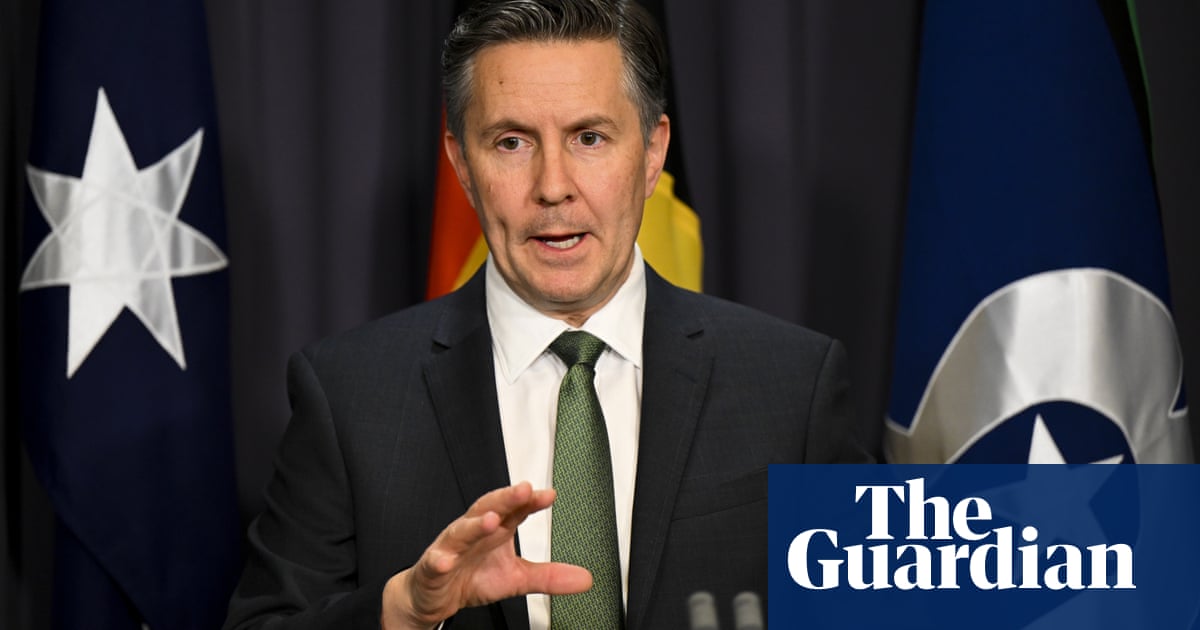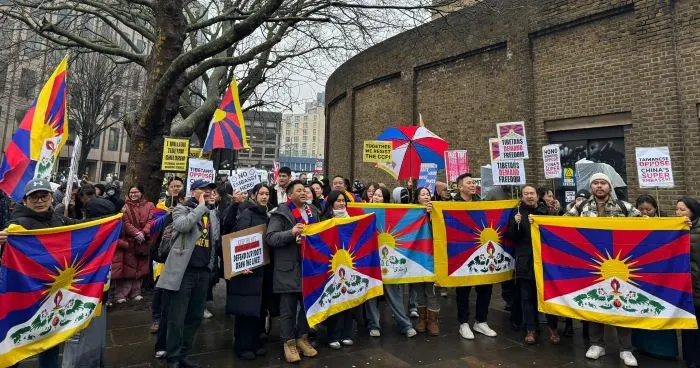Australia imposes mandatory Covid tests for travellers from China amid fears of diplomatic backlash
Australia will impose mandatory Covid-19 testing for travellers arriving from China after a spike in cases in the tourism and business market.
The Australian health minister, Mark Butler, announced on Sunday that travellers from China would need to take a Covid test within the 48 hours before travel and show evidence of a negative result before entering Australia, starting from 5 January.
He cited the “lack of comprehensive information” Beijing was providing to the international community about the outbreak gripping the nation of 1.4 billion people.
“The decision to implement these temporary measures has been made out of an abundance of caution, taking into account the dynamic and evolving situation in China and the potential for new variants to emerge in an environment of high transmission,” Butler said.
The mandatory testing will apply to travellers from Hong Kong and Macau in addition to those from mainland China.
Australia has now joined the US, India, Italy, Japan and Taiwan among other nations in imposing the mandatory test requirement for arrivals from China.
Butler said the government would provide further detail on the type of test passengers would need to take, but it was important to ensure they were “robust and verifiable”.
The World Health Organization has urged China’s health officials to regularly share specific, real-time information on the country’s Covid surge “to formulate accurate risk assessments and to inform effective response”.
In particular, WHO has requested more genetic sequencing data, data on hospitalisations, intensive care unit admissions and deaths – and data on vaccinations delivered and vaccination status, especially in vulnerable people and those over 60 years old.
“The Australian government shares the concerns that have been expressed over recent days by a number of other governments and, importantly, by the World Health Organization,” Butler said.
The World Health Organization has urged China’s health officials to regularly share specific, real-time information
Butler said that, in addition to mandatory testing requirements, Australia would put in place more measures to collect information, based on advice from the chief medical officer.
“Those arrangements include exploring the feasibility of wastewater testing from aeroplanes,” he said. “[This] has been picked up right now across the world in places including the United States and Europe.”
He said the government was also reviewing community wastewater testing arrangements across the country.
Butler said Australia was well positioned in “the fight against Covid” in an environment of largely open borders.
He said the government welcomed the resumption of travel between Australia and China, noting many Chinese Australians had been unable to see family and friends for months and, in some cases, years.
Butler said advice provided by Australia’s chief medical officers said travel between the two countries posed no immediate public health threat to Australia, which was well placed to manage the pandemic. He said the Omicron variant BF.7 – which is behind the wave of growing infections in China – had been present in Australia since mid-2021.
“This is developing really quickly,” he said. “Case numbers are climbing very quickly and there are concerns in an environment of cases spreading so quickly about the possibility of the emergence of new variants.
“There is no evidence of that right now and this is a measure taken out of an abundance of caution.”
Sign up to Guardian Australia’s Morning Mail Free daily newsletter Our Australian morning briefing email breaks down the key national and international stories of the day and why they matter Privacy Notice: Newsletters may contain info about charities, online ads, and content funded by outside parties. For more information see our Newsletters may contain info about charities, online ads, and content funded by outside parties. For more information see our Privacy Policy . We use Google reCaptcha to protect our website and the Google Privacy Policy and Terms of Service apply.
Asked if he accepted the decision would have diplomatic implications, Butler said the approach was no different to measures put in place in Europe, the US and Asia.
“It will not come as any surprise to the Chinese government that Australia is putting this in place,” he said.
He said the government had informed China of its plans on Sunday morning and “we are not aware of a response to that”.
Infectious diseases physician Dr Sanjaya Senanayake told the ABC a cautious approach to the outbreak in China was appropriate.
“A lot depends on if the data that we’re seeing from China is accurate,” he said. “Because we’re being told that the dominant strain there, or subvariant, is one of Omicron’s subvariants. It’s called BF.7, which is a BA.5 subvariant.
“We know that these Omicron subvariants can reinfect. But certainly the protection against severe disease is still [in Australia].”
Senanayake said Australia’s level of protection against Covid was vastly different compared with earlier in the pandemic.
“It’s different to earlier in the pandemic when Australia was closed,” he said. “We didn’t have any Covid. We didn’t have any natural immunity. We didn’t have any vaccines and we were scared of letting Covid in.
“Covid is all over Australia at the moment and it is Omicron. And we know that previous infections with Omicron and the vaccinations, and the combination of those two kinds of immunity, the so-called hybrid immunity, will give us some degree of protection against reinfection.”
China’s abrupt switch earlier this month from the “zero-Covid” policy that it had maintained for nearly three years has led to infections sweeping the country unchecked.
The switch by China followed unprecedented protests over the policy championed by the president, Xi Jinping, marking the strongest show of public defiance in his decade-old presidency and coinciding with grim growth figures for the country’s $17tn economy.
In a televised speech to mark the New Year, Xi said China had overcome unprecedented difficulties and challenges in the battle against Covid.
“At present, the epidemic prevention and control is entering a new phase,” he said. “It is still a time of struggle, everyone is persevering and working hard, and the dawn is ahead. Let’s work harder. Persistence means victory and unity means victory.”













